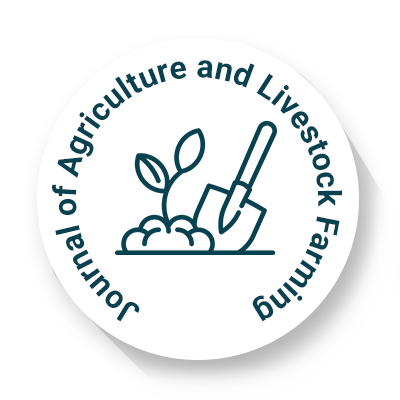
Journal of Agriculture and Livestock Farming
OPEN ACCESS

OPEN ACCESS
Animal production, including both livestock and poultry, is vital for global food security and economic growth by supplying meat, milk, eggs, wool, and various other animal-derived products. Livestock farming encompasses cattle, sheep, goats, and pigs, which are cultivated for their meat, milk, and wool. Effective livestock farming depends on appropriate breeding, nutrition, disease control, and sustainable husbandry practices to enhance productivity while reducing environmental impact. Progress in genetics and biotechnology has enhanced breeding initiatives, resulting in more productive and disease-resistant animal breeds. Moreover, sustainable feeding methods, including precision nutrition and alternative feed sources, promote better animal growth and health. Nevertheless, livestock production encounters issues associated with climate change, land degradation, and greenhouse gas emissions, requiring the implementation of climate-smart livestock management approaches. The incorporation of technology, including automated feeding systems and digital health monitoring, is boosting productivity while supporting animal welfare and sustainability.
Poultry farming, encompassing chickens, turkeys, ducks, and various other domesticated fowl, is among the rapidly expanding sectors in the livestock realm due to its efficiency and cost-effectiveness. Poultry farming serves as a vital source of protein by producing eggs and meat, with broiler chickens mainly reared for meat and layer hens for egg production. Contemporary poultry farming features intensive production systems, in which birds are kept in regulated environments to enhance growth rates and egg production capabilities. Effective control measures for diseases, immunization initiatives, and biosecurity protocols are crucial to avert outbreaks like avian influenza and Newcastle disease. Feed efficiency is another vital aspect, as poultry need well-balanced diets to ensure quick growth and increased egg production. Although industrial poultry farming provides economic advantages, worries about antibiotic resistance, animal welfare, and environmental sustainability have sparked greater interest in free-range and organic poultry practices. By integrating sustainable feed options, enhancing waste management, and embracing responsible farming methods, the poultry sector can consistently fulfil worldwide protein needs while promoting ethical and eco-friendly production.